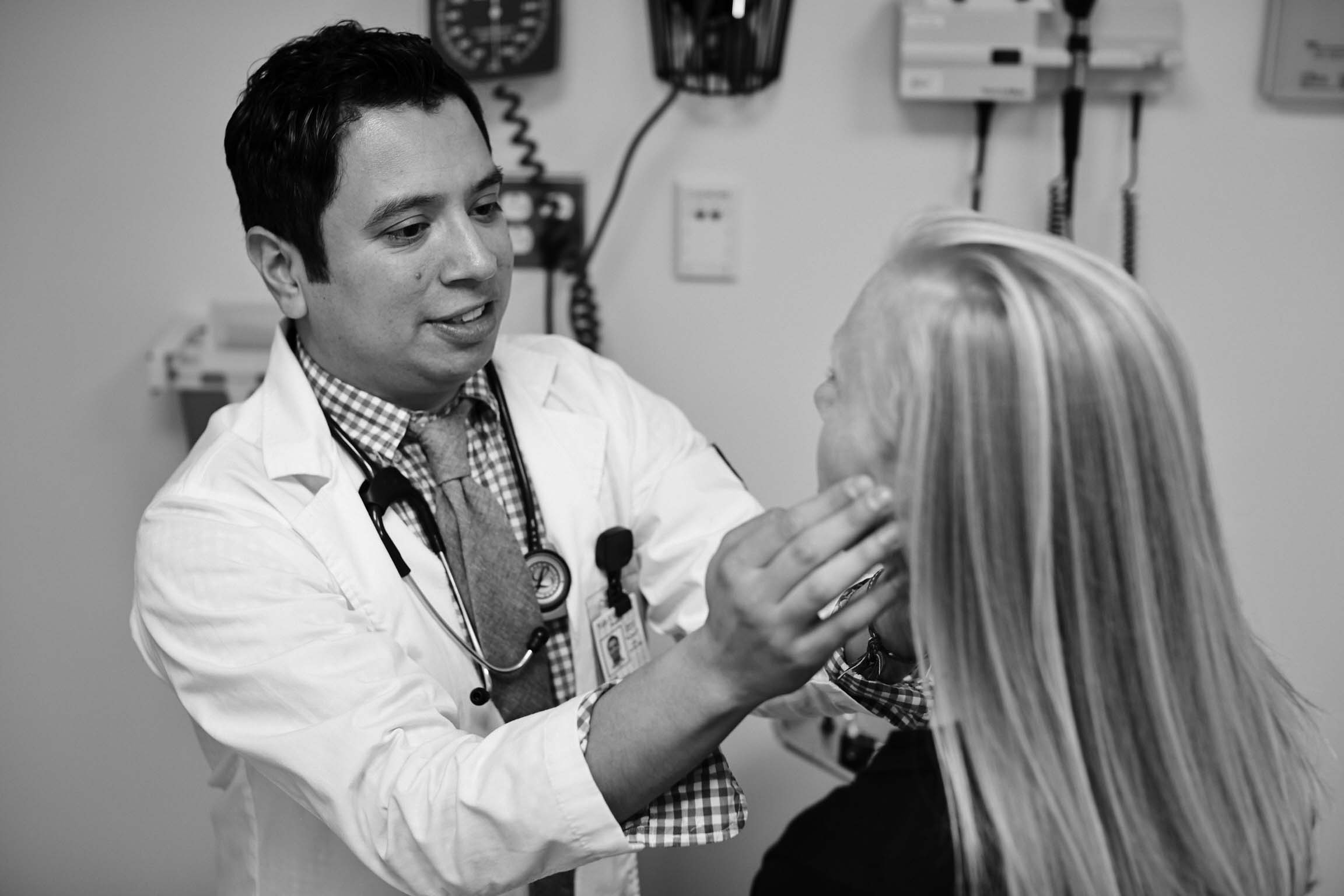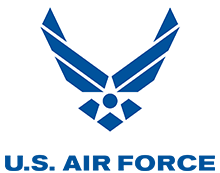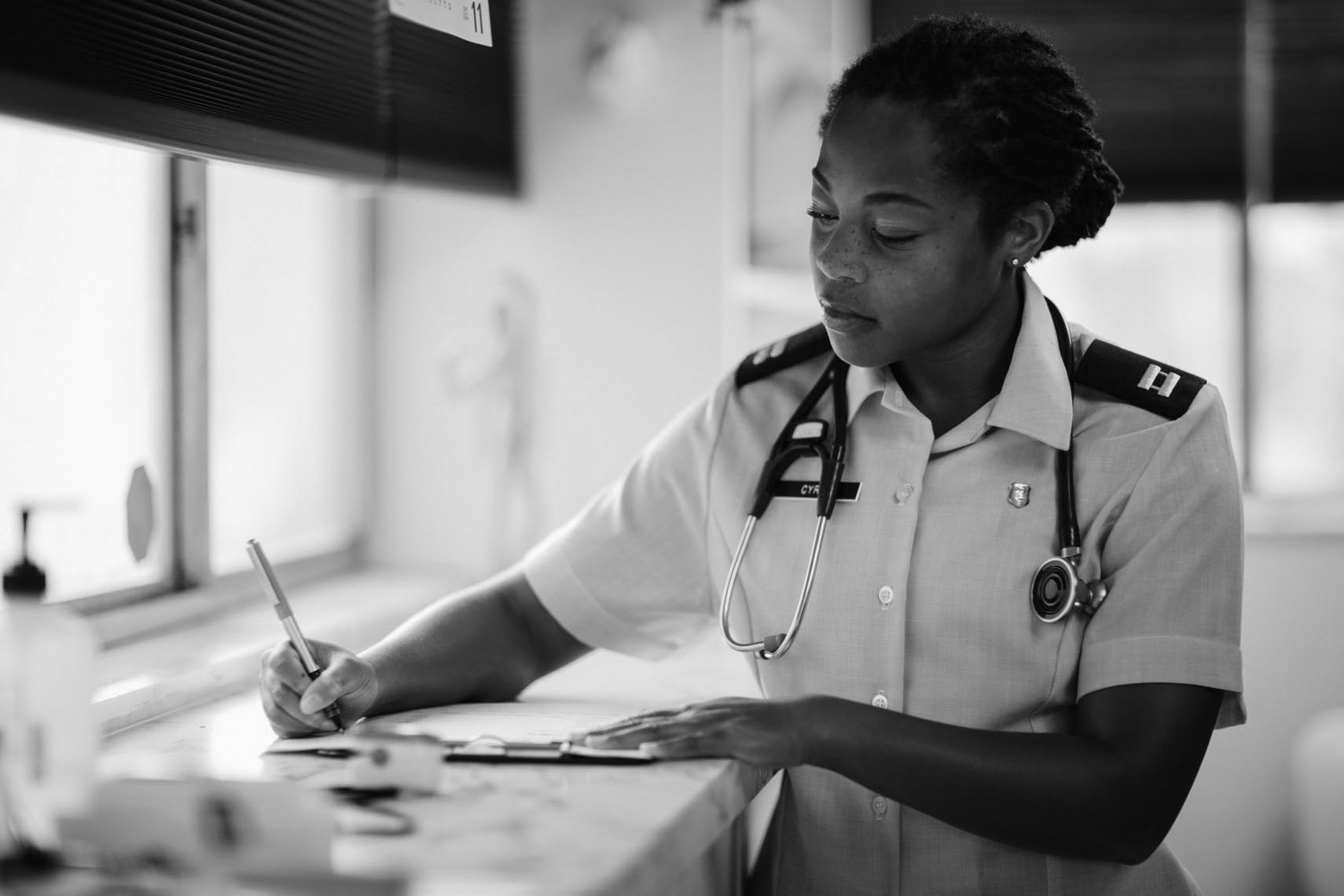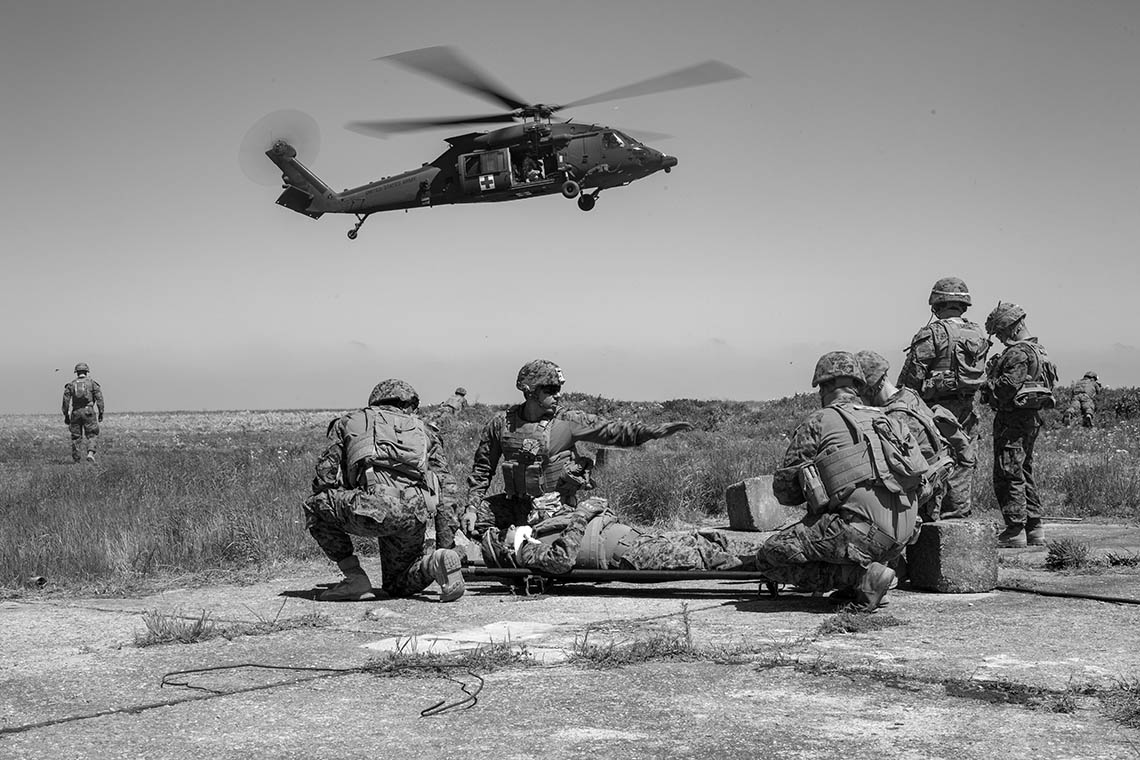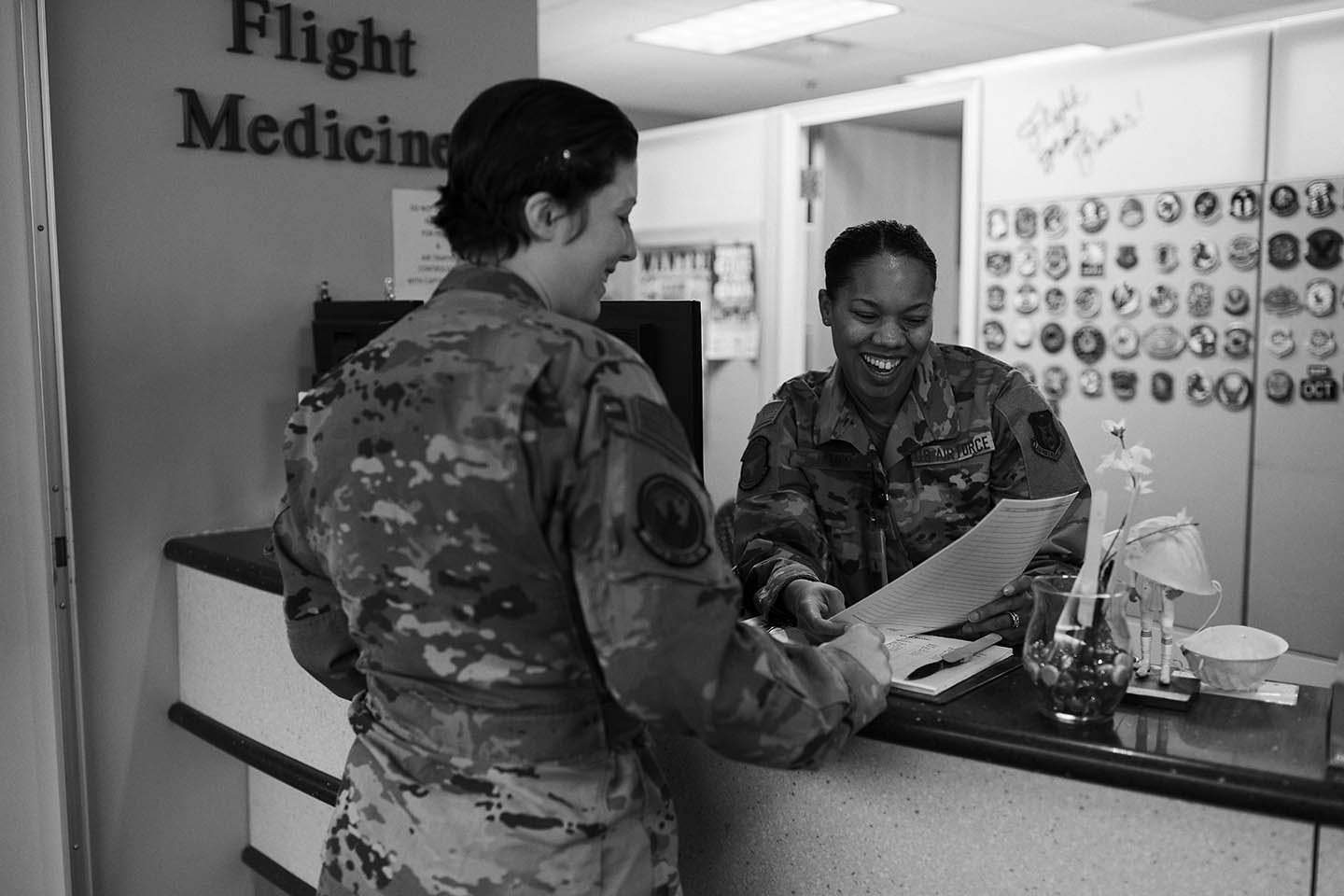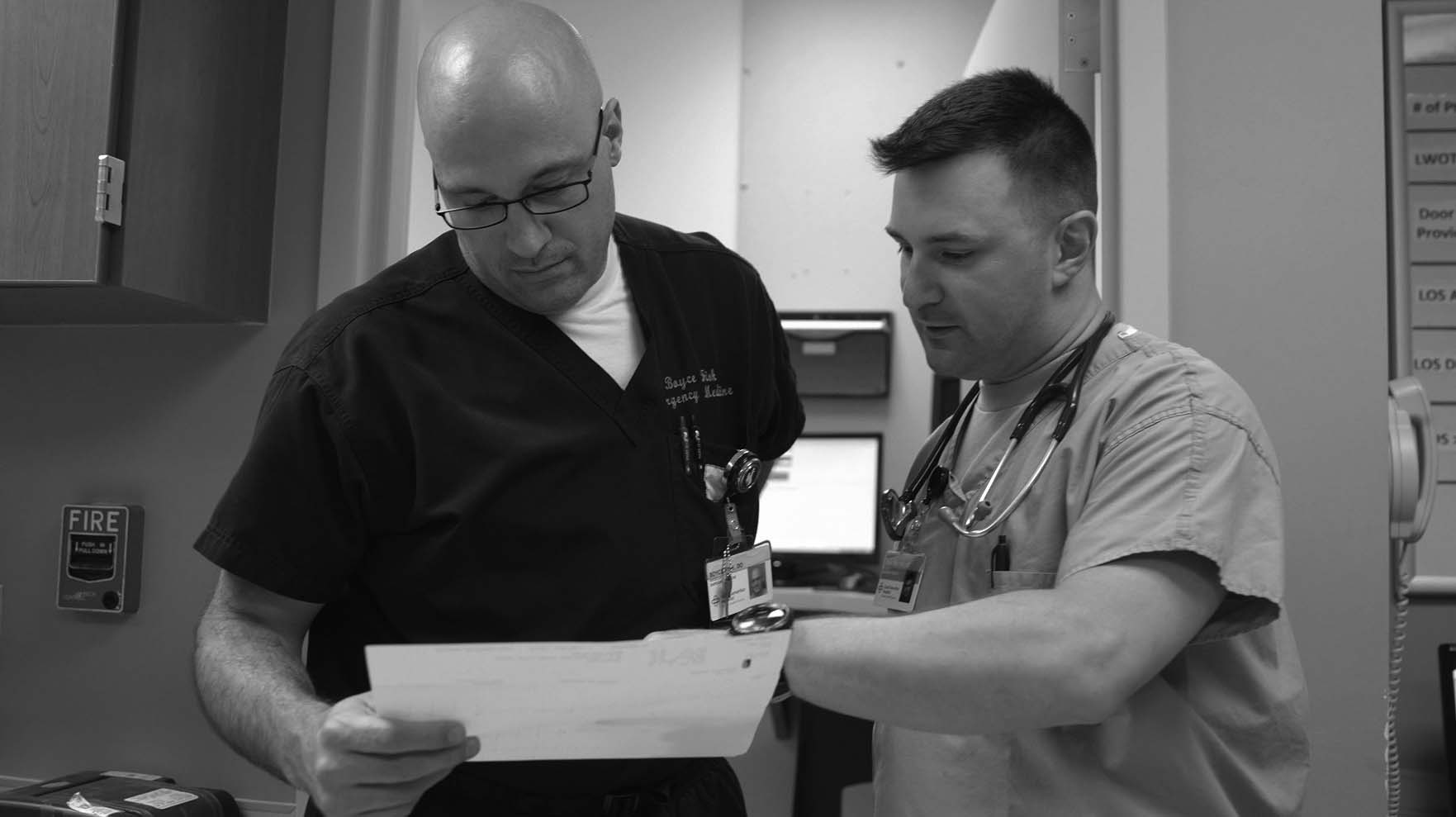- FAQs
- |
Uniformed Services University of Health Sciences (USU)
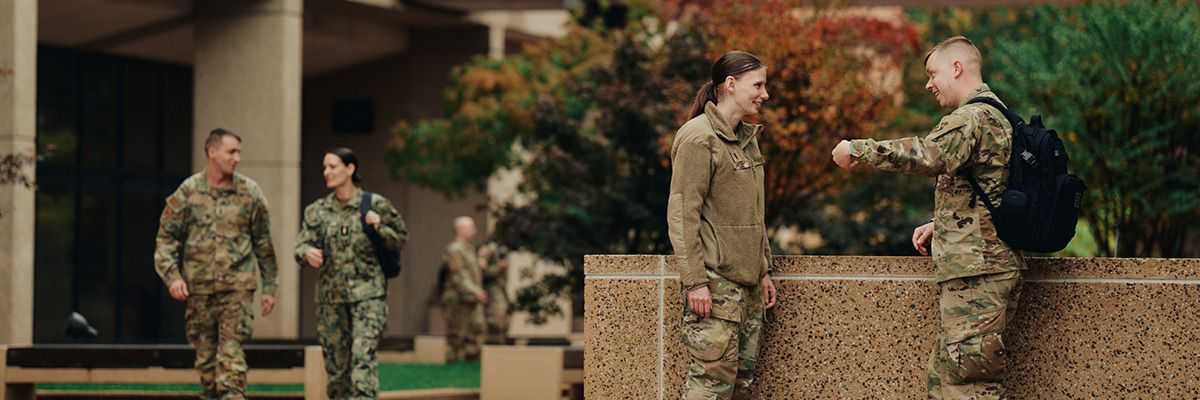
The Uniformed Services University of the Health Sciences (USU) was founded to be "America’s medical school for uniformed physicians." Located in Bethesda, Maryland, USU looks for aspiring medical students with a passion for service who thrive in a collaborative environment.
Since all USU students are active-duty service members, their education is paid for by the U.S. government, and they receive a military salary and benefits, including a housing allowance. The USU accepts both civilian and military applicants for commissioning into the Army, Navy, Air Force and U.S. Public Health Service.
Life at USU - Our school of Medicine
Listen in as USU students share their experiences at America’s Medical School.
Life at USU - Our school of Medicine
Listen in as USU students share their experiences at America’s Medical School.
BURNHAM: when I think about what it means to be a student at USU it comes back to this idea of like a shared purpose and a shared mission. It's a really welcoming place and I’ve made a lot of really awesome friends and it really does kind of have that kind of like home feeling with all of our classmates and we hang out in the student lounge, and we study together in the library and definitely a very like community feel. It's a really driven group of people so everyone's you know working very hard and also having a lot of fun.
[Music]
HARPER: Everybody here has a different walk of life that they came from. Myself I came from prior service as a lab tech where I kind of just worked in the lab but i've met people who have gone to nepal and spent years there living amongst the people there and really speaking the language and getting a chance to really understand the cultures and what they learned there they bring back and I learn it helps me to be more empathetic for patients that i don't understand or cultures I don't understand. We have students from Hispaniola that I never even thought about is you know coming from here being that it's the dominican republic and Haiti at the same time which you have a culture that's mixed and you get a chance to just understand different things about different people and how how they lived how they got here and it kind of helps motivate you and understand that your story is just as important as the next person's story. We're a team here when everybody succeeds we the whole team succeeds
if one person is struggling, we're going to make sure that they catch up and and they succeed as well with us.
[Music]
BURNHAM: All of your professors and all of your classmates are very much here for you and here to help if you need anything so it feels like a collaborative um push to like learn and and to figure things out and to really kind of like understand how the human body works and how being a doctor works and they are making sure that we have like the skills and the like emotional competencies and capabilities to really be exceptional providers because we're going to be the ones treating not just them but like their families. When I go to the library to study it's
not just so that I can learn this so that I um you know can get a test score. It’s so that I can learn this so that I can be a better doctor that I can you know serve my country and serve um people who are making incredible sacrifices every day of their life and I think that sense of vision and mission and collaboration is really like permeates everything we do at USU.
[Music]
HARPER: Any support that you're looking for regardless of your ethnicity your background your family situation you're going to find it here. The military is a family, and we really mean that so when you sign that paperwork here you're joining a family not join not just joining a medical school.
[Music]
Operation Bushmaster: Teaching Leadership
Catch fourth-year USU students in action during Operation Bushmaster.
Operation Bushmaster: Teaching Leadership
Catch fourth-year USU students in action during Operation Bushmaster.
NARRATOR: In some form or another all graduating medical students and now our graduating advanced practice nurses have performed during Operation Bushmaster.
(screaming)
It's a combination of being an excellent clinician, so they have to know the medical part of this, but they also have to have kind of a more subjective feeling of being able to lead and lead their peers which is a very difficult thing to do sometimes. They all switch out in their leadership roles and so they're not always in a position where they're the ones making the big decisions, but they're always going to be in a support role within the battalion and the platoon.
"We got more people."
"Help."
"We got three."
"Please help."
"You need to speak up."
USU is the only Medical School in the country that has a department of military and emergency medicine. Bushmaster is the only exercise of its kind, not only within the military medical community, but really within the Department of Defense. Nothing really comes up to this level of complexity in this level of depth of knowledge that we expect out of our students.

